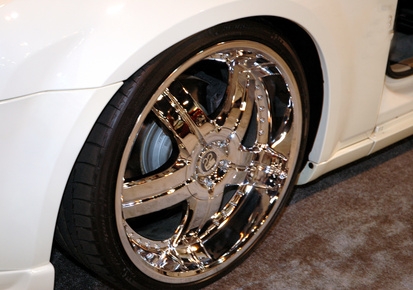
Even inexpensive aftermarket rims are far from cheap, so it's only fair to wonder whether forged rims are worth the expense. The answer depends on the look you desire and the intended application.
Cast wheels are formed by pouring molten aluminum into a mold and machining the bolt-holes and flanges into spec. Forged wheels are formed by hammering hot or cold steel into shape between a set of dies.
Cast wheels have a uniform grain, where the molecules sit on top of each other and are held together by mechanical adhesion (like a bowl of cooked rice). Forged wheels have an interlocking grain structure that is more difficult to pull apart (like a bowl of spaghetti).
Most cast wheels use A-356 aluminum, which is only about 60 percent as strong as the 500 or 6000-series alloys used for forged wheels.
While the weight of forged and cast wheels is almost equally dense, the stronger nature of the forged aluminum means that wheels made in that manner require less material to maintain the same rigidity.
The only advantage that cast wheels have over forged units is that they're 25 to 50 percent cheaper.
Forged wheels are recommended for use in all low-profile tire applications (2.5 inches of sidewall or less). Potholes, curbs and road debris can easily bend cheap cast rims.